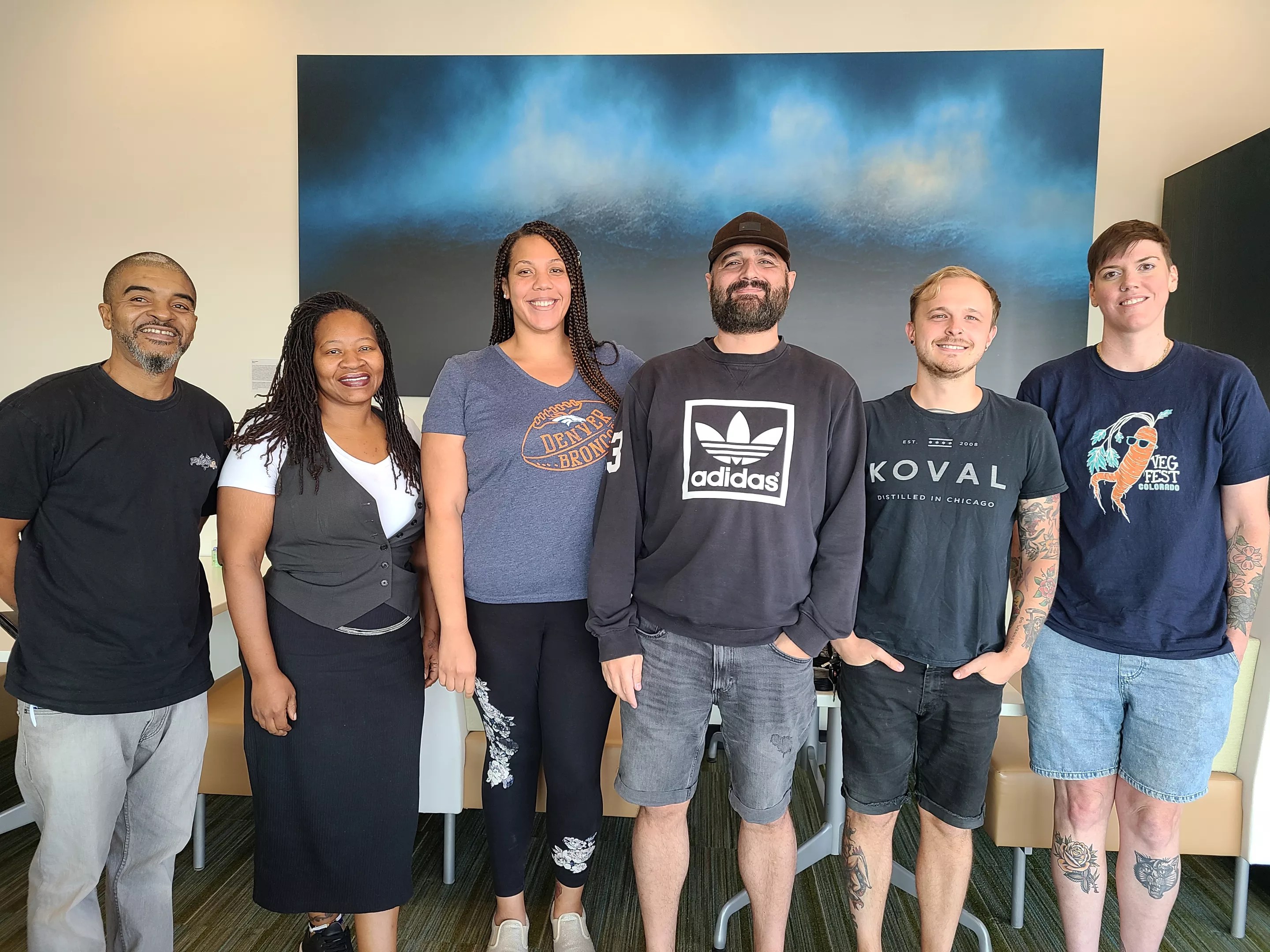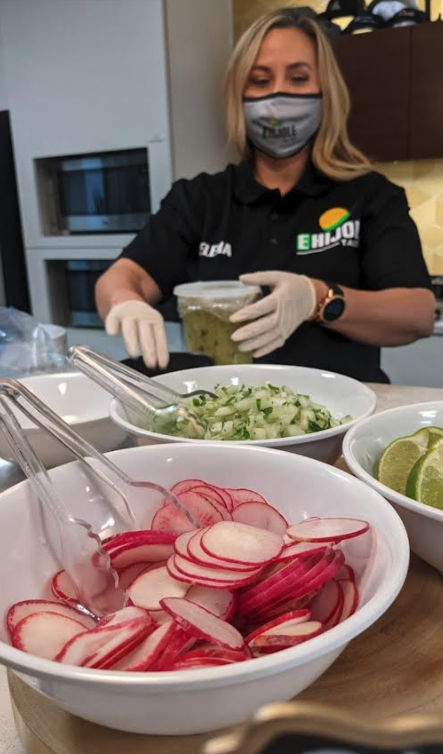
Denver Economic Development and Opportunity

Audio By Carbonatix
Kenyan barbecue, a Cincinnati-style chili joint and an incubator kitchen with a rotating bar program are just some of the concepts that seven aspiring restaurateurs hope to open in Denver with the help of Restaurant-Up, a city program funded through Denver Economic Development and Opportunity and the American Rescue Plan Act.
“The whole idea was, first and foremost, we lost so many restaurants due to COVID,” says John Hill, senior advisor with DEDO. “We certainly wanted to help populate some of those spaces again. I think people love the local restaurants the Denver market is known for, so we wanted to bring some new entrepreneurs into the fold.”
Hill notes that the process of opening a brick-and-mortar restaurant is a lot more complicated than people might expect when they first start, and this program helps would-be restaurateurs navigate the challenging process. “They’re all running catering companies [and] doing pop-up events; they’re very exposed to the industry,” Hill says. “When you’re going in and investing in that restaurant space, there are so many blind spots. Unless you’ve done it numerous times, there are going to be surprises.”
To qualify for the program, participants are required to have five or more years of experience in the restaurant industry, a concept idea for a startup, at least two years of experience in restaurant management, and the intention of opening a restaurant in Denver. The current group of participants submitted applications in May and recently completed the ten-week group curriculum program, which was designed by the Denver Metro Small Business Development Center and EatDenver, a nonprofit organization founded in 2008 that supports Denver’s independent restaurant community.
The curriculum included education on topics like writing a business plan, office management, marketing strategies and more to ensure that the restaurateurs have the resources they need. EatDenver also brought in guest speakers such as Juan Padró, CEO of the Culinary Creative restaurant group, and Tim Maness from Shamrock Foods to guide the budding entrepreneurs on business building and management.
After completing the group curriculum, each participant was matched with mentors from the industry, including Dave and Dana Query, owners of the Big Red F Restaurant Group; Peter Newlin, CEO of the Gastamo Group; Nicole Mattson, co-founder and owner of Nocturne; Andy Niemeyer, owner of Cart-Driver; Daniel Asher, owner of Working Title Foods and the high-profile chef behind River and Woods and Ash’kara; Hal Reynolds of Denver Beer Co; and Meaghan Goedde, former COO of Sage Restaurant Concepts.
The mentors will continue working with participants as they finalize their business plans, which will be submitted by the first week of November. All of the participants who fulfill the program requirements are eligible to receive an award of $30,000 from the Business Recovery Category of ARPA to put toward their restaurant in the form of reimbursements for startup expenses.
Participant April Yiadom runs BBQ N’Kenya, Denver’s first Kenyan barbecue outfit, which opened with a pickup-and-delivery operation in 2021. She says that she applied because she loves Denver and wanted to bring something to the restaurant scene that she hadn’t seen before. With the aid of mentors Dana and Dave Query, she was able to solidify her business plan and connect with investors to help her open her first sit-down restaurant.

Elena Martinez is the owner of EHijole Tacos.
Elena Martinez
“I definitely think Kenyan barbecue is a unique niche, because I’m the only place that provides it,” Yiadom says. For this cuisine, goat, beef, chicken, bison and pork are seasoned with Kenyan spices and smoked for more than twelve hours over African wood. The barbecue comes with signature sauces and a kachumbari (tomato and onion) salsa alongside such other items as ugali (a porridge native to Africa), corn bread, and mac and cheese.
Yiadom’s husband is from Kenya, and during their frequent travels to his homeland, she started to master Kenyan cuisine. A Johnson & Wales graduate, she has been in the culinary field for 22 years but has never opened a brick-and-mortar location – yet. The Restaurant-Up program helped her figure out the business side of creating a restaurant. “It’s always good to have some guidance and have someone come and ask questions,” Yiadom says. “I appreciate Denver providing such a wonderful program to restaurant entrepreneurs.”
Five years ago, Donald James started a company called stick it to me catering, which featured chicken on a stick. The business transformed into Pit Stop BBQ, and now that he’s gone through the program, James hopes to open a restaurant by early next year; he’d love to have a spot in the Lowry area.
His mentor is Hal Reynolds from Denver Beer Co; James says the program has been helpful in getting him set up with the necessary resources and connections to create a business plan. The restaurant will specialize in “Mile High barbecue,” with specialties such as brisket, pulled pork, shrimp and grits, and spicy chicken and waffles.
“The reason we applied to begin with was to just get to the next level and the next stage,” James says. “The program was good; it was good information, we got good contacts [and] we met a lot of different people in the industry that shot us in the right directions.”
Elena Martinez, another participant, is the owner of EHijole Tacos, a taco bar and cart business that has been operating for five years. After focusing on catering private events, Martinez wanted to reach outside her comfort zone and try for an actual sit-down location. After going through the program, she envisions the restaurant as a family place that encourages interaction and being together when eating rather than simply staring at screens while consuming a meal. She hopes to bring in activities like augmented reality (AR) to get people engaged and make a meal there a full experience that extends beyond just the food.
“There are visions that I have when I go out to eat now of what I would like it to be,” Martinez says. “You’re always learning in this industry, and collaborating with others kind of sparks the idea to be excited about your business, to keep moving forward.”
Through the program, she adds, the biggest thing she’s learned is how to pivot when things don’t go as planned. While in Restaurant-Up, she caught West Nile virus and was out sick for two months. Although she’s better now, she had to figure out how to work around her illness and the time she lost, and then get back on track.
Now she’s hoping to be able to open her restaurant by next summer, with the help of Hill and the other mentors. “This program is a big blessing for any entrepreneurs in the industry,” Martinez says. “There’s a lot of education provided and resources; I’ve never seen anything like it.”